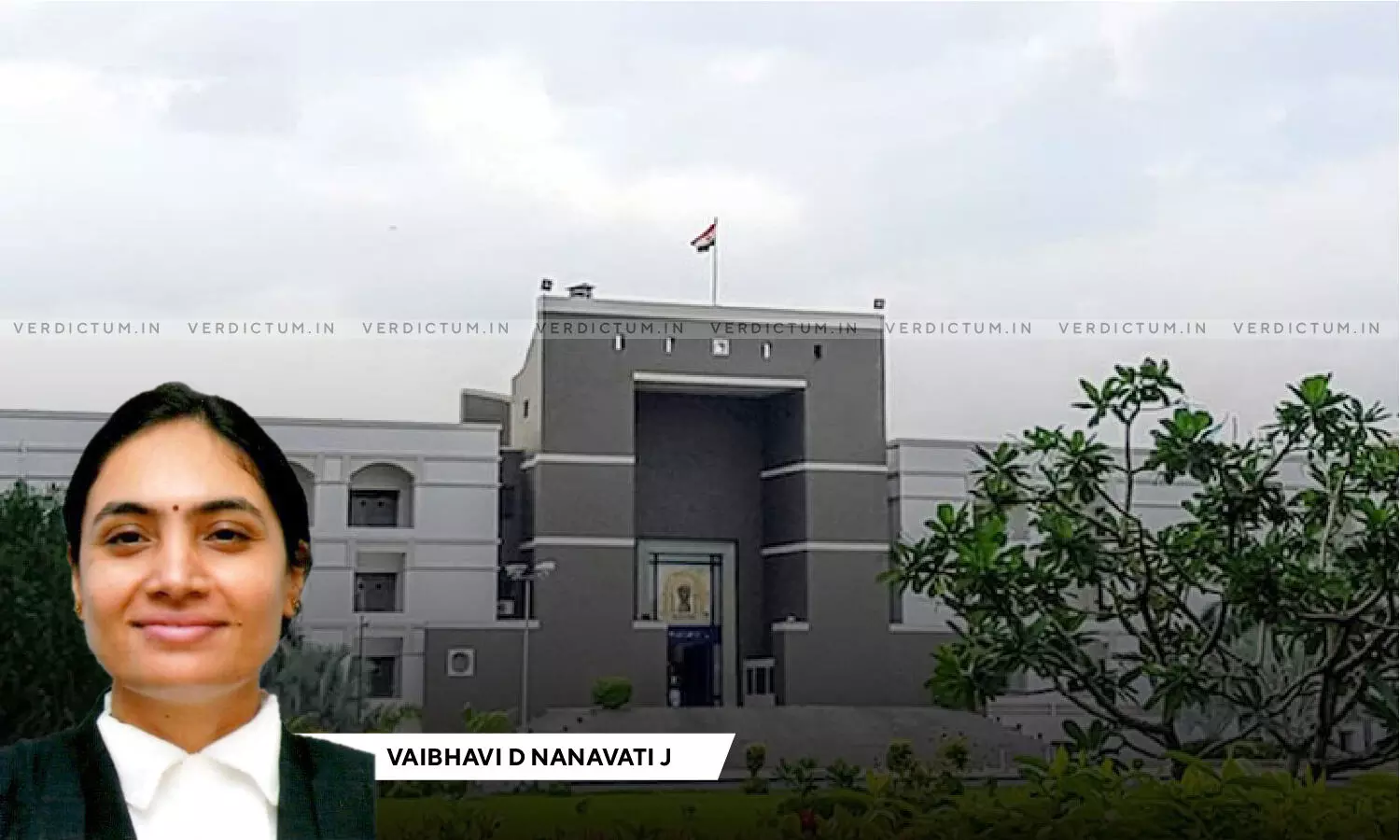
Gujarat HC Relegates Matter To CBFC To Decide Within 24 Hours In Case Involving Casteist Remark From ‘Guthlee Ladoo’ Movie
 |
|The Gujarat High Court has relegated the matter to CBFC (Central Board of Film Certification) to decide the issue within 24 hours in a case involving usage of casteist remark from the movie named ‘Guthlee Ladoo’.
The petitioner had filed a petition before the court seeking removal of a word from the aforesaid movie and withdrawal of its certification.
A Single Bench of Justice Vaibhavi D. Nanavati directed, “Considering the dispute-in-question, the present petition stands disposed of relegating the matter to the competent authority i.e. respondent No.1 herein to decide the same within 24 hours in exercise of powers under the provisions of Section 6 of the Cinematograph Act, 1952.”
Advocates V.V. Gohel and Vishal P. Thakker represented the petitioner while Advocates Rohan Lavkumar Shah and Jennifer Michael represented the respondents.
In this case, the petitioner had approached the Court invoking Article 226 of the Constitution of India as well as the provisions of the Cinematograph Act, 1952 as well as the Scheduled Castes and Scheduled Tribes (Prevention & Atrocities) Act, 1989 (for short ‘the Atrocities Act’) challenging the hurtful use of the local name of “Valmiki” caste by using the term “Bhangi” number of times in the movie. The petitioner did not oppose the theme of the movie but, the usage of the term “Bhangi” which hurts the sentiments of the people of Valmiki caste, and the atrocious usage of the term was also against the provisions of Section 5(b) of the Cinematograph Act as well as covered under the provisions of the Atrocities Act.
The petitioner came across the trailer of the movie “Guthlee Ladoo” on You Tube being produced/directed/written by the respondents. The CBFC granted ‘U’ certificate to the film in the name of the producer. The counsel for the petitioner submitted that the words transcribed at 00.42 minutes, a conversation between a mother and son, was derogatory with respect to the Valmiki caste and that the usage of said word hurts the feelings of the people belonging to the said community. It was further submitted that the use of the said word is prohibited under the Atrocities Act.
The High Court in the above context of the case noted, “In the aforesaid set of facts, the respondent No.3 has filed affidavit-in-reply and placing reliance on the same, Ms. Jennifer Michael learned advocate with Mr. Dhruvin N. Dossani, learned advocate appearing for the respondent No.3, submitted that the Film has been screened at various Film Festivals and that the Film is certified with the ‘U’ certificate by the competent authority - respondent No.1 herein.”
The Court said that the interest of justice would be served by relegating the issue-in-question to the CBFC to consider the dispute-in-question under the provisions of Section 6 of the Cinematograph Act, 1952.
“Mr. Siddharth Dave, learned advocate has appeared on the request made by this Court to the learned ASG, Mr. Devang Vyas, to assist the Court with respect to relegating the issue- in-question to the Revisional Authority i.e. Central Government. Mr. Dave, learned advocate, stated that the present order will be communicated to the competent authority forthwith”, observed the Court.
Accordingly, the High Court disposed of the petition.
Cause Title- Nimesh Vasantbhai Vaghela v. Central Board of Film Certification